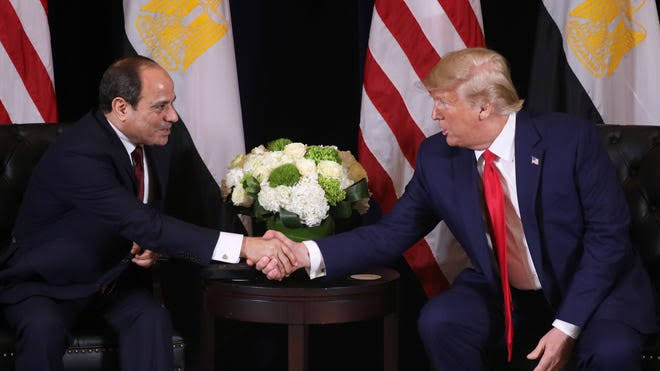
Former U.S. President Donald Trump has stated that Egypt was deliberately excluded from his controversial travel ban policy due to the country’s close diplomatic and strategic relationship with the United States.
Speaking at a campaign event, Trump defended the travel restrictions that were implemented during his presidency, which targeted several Muslim-majority countries. He explained that Egypt, despite its demographic and religious profile, was not included in the ban because of its importance as a long-standing U.S. ally in the Middle East.
“We didn’t include Egypt in the travel ban because we had a great relationship with them,” Trump said. “They were working closely with us on security, counterterrorism, and regional stability.”
Trump praised Egyptian President Abdel Fattah el-Sisi as a “strong leader” and pointed to Egypt’s cooperation with the U.S. in efforts to combat extremism and maintain peace in the region, especially in relation to Israel and the broader Arab world.
The travel ban, first introduced in 2017, faced intense criticism both domestically and internationally for allegedly targeting Muslims and undermining America’s image as a nation open to immigrants and refugees. However, Trump has continued to defend the policy, describing it as necessary for national security.
Trump’s recent comments have reignited debate about the criteria used to select countries for the travel ban and the influence of bilateral relationships on national security decisions. Critics argue that the exclusions and inclusions in the policy were politically motivated rather than based purely on threat assessments.
With Trump actively campaigning for a return to the White House, his remarks signal a potential revival of similar policies should he be re-elected. His reaffirmation of ties with Egypt also underscores the geopolitical balancing act involved in crafting U.S. foreign and immigration policies.

